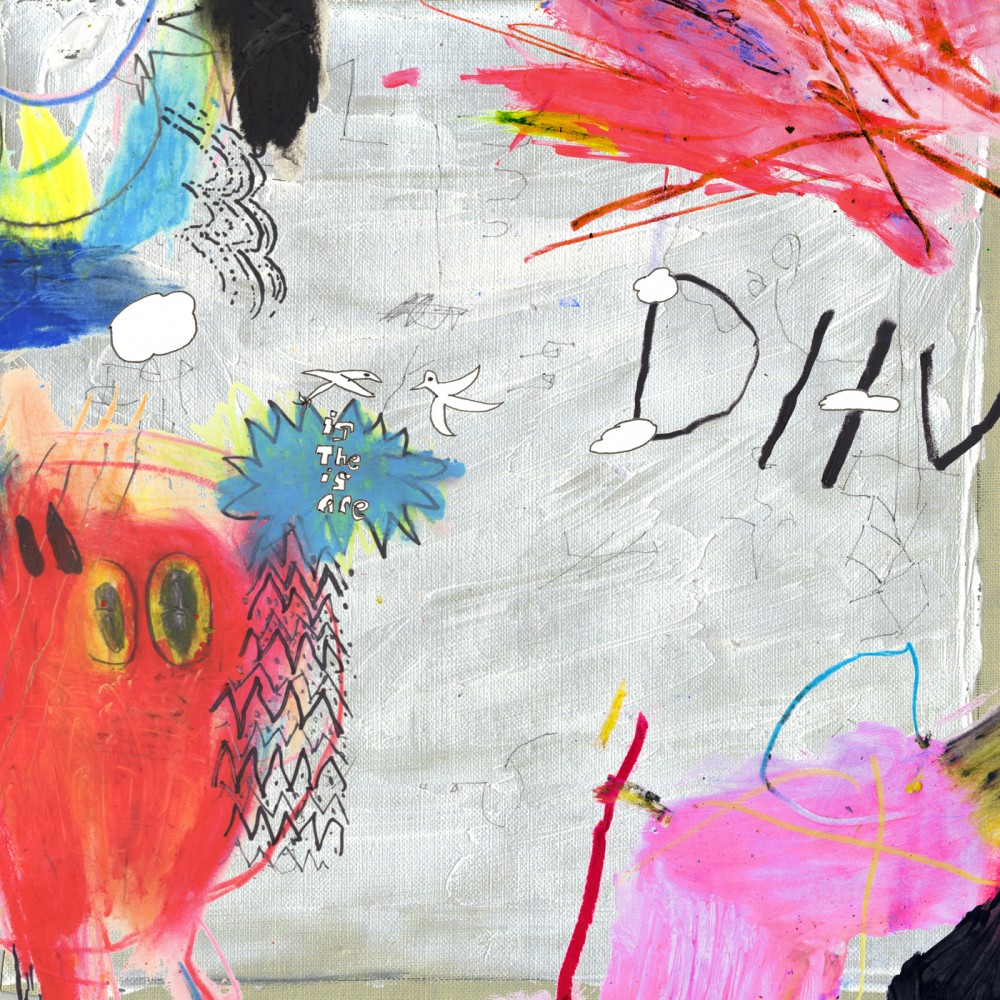Released: 2/5/2016
Reviewed: 12/31/2016

Every review of this album which I’ve seen focuses on the story behind the making of it. It’s a compelling one, even if, in the rock world, it’s basically a cliche. The mastermind behind DIIV, Zachary Cole Smith, struggles with drug and alcohol abuse. During the making of this album, he was arrested for drug possession. The media speculated about whether he would be able to hold himself together long enough to finish his album. Smith was afraid that he wouldn’t survive long enough. Here’s a quote of his that I ripped from Wikipedia: “I know I have to stay alive at least until the album's done. This is one shot at immortality, if I ever have one.”
I’ll write more about the story in a sec, because it’s impossible to separate the story and the album. It leaks all the way through. But first, I want to write about the music, because I fell in love with it before I knew anything about the man who made it. It’s a long album--seventeen tracks--but almost every one contains a special moment. “Napa” is basically a transition, 1:44 long, but DIIV effortlessly creates an enveloping, menacing atmosphere. “Yr Not Far” has a heart-wrenching chorus. “Mire (Grant’s Song)” makes wonderful use of dissonance which reminds me of the best of Sonic Youth.
DIIV also brings to life a nice emotional range on this album. If you read the reviews, you’ll be led to believe that this is dour stuff--an album obsessed with addiction and the hopelessness of the protagonist’s situation. Pitchfork found it apt to describe it this way: “...gray, gloomy textures, depressive fatalism.” This is the story leaking through again. But listening to this album without knowing the story, I had a different impression. Some of the tracks are despairing, but others are not. “Under the Sun” feels joyful to me. In “Out of Mind,” even as Smith laments how his life has fallen apart, he says: “I’ll be fine / When it’s time I’ll know what to do.” So yes, this is an album made by a man in crisis, but that man is still fighting.
Even when the lyrics are hopeless, the guitar and drums keep pushing the album along. Don’t imagine that this is Bon Iver--one man tenderly exploring his own fragility, accompanied by a respectful guitar. The band relentlessly develops its themes and remains musically precise, even as its lead singer tells us that “the last time I walked down this street I wanted to die.” (That’s taken from the title track.) In “Dopamine,” as the guitars jingle in the background, Smith sings:
Would you give your 81st year For a glimpse of heaven, now and here? Would you give your 60th year For a glimpse of heaven, now and here? Would you give your 45th year For a glimpse of heaven, now and here? Would you give your 34th year For a glimpse of heaven, now and here?
So now we’ve returned to the story, I guess. It’s difficult to escape it.
If I think about ambient music--the genre that I know the best--the essential ingredient in a great album is close observation of the world. The ambient artist is in a perpetual scavenger hunt for interesting sounds. They trek into the wilderness to record birds or wind in the trees. I listened to an album this year which consisted of recordings of different dishwashers. (I wouldn’t recommend it.) The essential ingredient in a great rock album, by comparison, seems to be the inner turmoil of the artist. Rock musicians have to unearth their struggles for public digestion. I have no idea if this is psychologically healthy for them or not.
If it sounds like I’m not comfortable with this, you’re right. I don’t like that the essence of DIIV’s business is Zachary Cole Smith’s addiction. His music is sublime, and I’m going to continue to listen to it in 2017. I know that he would want me to. But I remain worried that the foundation of great rock music is the emotional turmoil of a few sensitive people.
I don’t want to conclude with a reflection on the story. The story dominates every review of this album, and I don’t want it to dominate this one--particularly since it was such a small part of my experience with it. When I think about Is The Is Are, I think about playing it loud as I drove down to San Diego, singing along when I could pick out the words--the normal things that a person does with an album that they love. Zachary Cole Smith has my sympathy for his addiction, but he also has my gratitude for having created something so beautiful.
Comments
If you'd like to comment, you need to be logged in. See the nav bar at the top. If you don't have an account, I'd love to create one for you! Just email me.